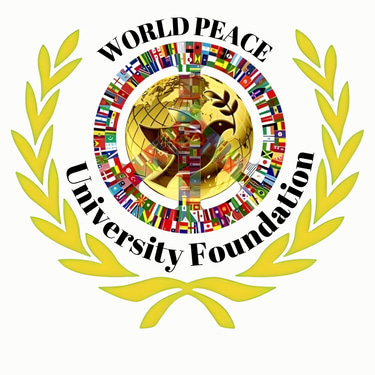The Role of the United Nations in Fostering Global Harmony: Exploring the Impact of Diplomacy and Collaboration
4/23/20242 min read


The Role of the United Nations in Fostering Global Harmony: Exploring the Impact of Diplomacy and Collaboration
The United Nations (UN) plays a crucial role in fostering global harmony by promoting diplomacy and collaboration among nations. With its mission to maintain international peace and security, the UN acts as a platform for dialogue, negotiation, and cooperation, aiming to resolve conflicts and address global challenges. In this article, we will delve into the various ways the UN contributes to global harmony through its diplomatic efforts and collaborative initiatives.
1. Promoting Diplomacy
Diplomacy is at the core of the United Nations' work in fostering global harmony. Through diplomatic channels, the UN facilitates dialogue between nations, encouraging peaceful resolutions to conflicts and disputes. The UN Secretary-General, as the chief diplomat, plays a vital role in mediating between parties and promoting peaceful negotiations.
One example of the UN's diplomatic efforts is the General Assembly, where representatives from all member states gather to discuss and address global issues. The General Assembly provides a platform for nations to express their concerns, exchange ideas, and seek consensus on various matters, ranging from peacekeeping to sustainable development.
Furthermore, the UN Security Council, composed of fifteen member states, including five permanent members with veto power, plays a crucial role in maintaining international peace and security. The Security Council can impose sanctions, authorize peacekeeping missions, and take other necessary measures to resolve conflicts and prevent the escalation of violence.
2. Facilitating Collaboration
Collaboration is another key aspect of the UN's efforts to foster global harmony. The UN brings together nations, international organizations, civil society, and other stakeholders to collaborate on various issues, such as climate change, poverty eradication, and human rights.
One notable example of collaborative efforts is the Sustainable Development Goals (SDGs). Adopted by all UN member states in 2015, the SDGs provide a framework for global action to address pressing challenges, including poverty, inequality, and environmental degradation. The SDGs encourage countries to work together, share knowledge and resources, and implement sustainable development practices.
The UN also facilitates collaboration through specialized agencies, such as the World Health Organization (WHO), the United Nations Educational, Scientific and Cultural Organization (UNESCO), and the International Labour Organization (ILO). These agencies focus on specific areas of expertise and work with governments and other stakeholders to address global issues effectively.
3. Peacekeeping and Conflict Resolution
One of the most visible roles of the United Nations in fostering global harmony is its peacekeeping operations. The UN deploys peacekeeping forces to regions affected by conflicts, with the aim of maintaining peace, protecting civilians, and facilitating the political process.
Peacekeeping missions often involve a multidimensional approach, combining military, police, and civilian components. These missions work closely with local authorities, governments, and other stakeholders to create a conducive environment for peace and stability. By providing a neutral and impartial presence, UN peacekeepers help build trust among conflicting parties and support efforts towards reconciliation and sustainable peace.
Furthermore, the UN plays a significant role in conflict resolution through its mediation efforts. The Secretary-General and other UN envoys engage in diplomatic negotiations, shuttle diplomacy, and dialogue facilitation to bring conflicting parties to the table and seek peaceful resolutions. The UN's mediation efforts have contributed to the resolution of numerous conflicts worldwide, promoting global harmony and stability.
Conclusion
The United Nations plays a vital role in fostering global harmony through its diplomatic efforts and collaborative initiatives. By promoting diplomacy, facilitating collaboration, and engaging in peacekeeping and conflict resolution, the UN strives to maintain international peace and security. While challenges persist, the UN's commitment to dialogue, negotiation, and cooperation remains essential in addressing global issues and building a more harmonious world.
Connect
Email : info@wpufoundation.org
Follow
Stay Connected with Us
+1 (564)243 9111
World Peace University Foundation is 501(c)(3) nonprofit organization EIN - 99-1863511, All donation is tax dedcutable as federal govt rule. ©2024 WPU-F. All rights reserved.
Address
424 W. Bakerview Road, Ste 105-2056
Bellingham, WA 98226 United States
